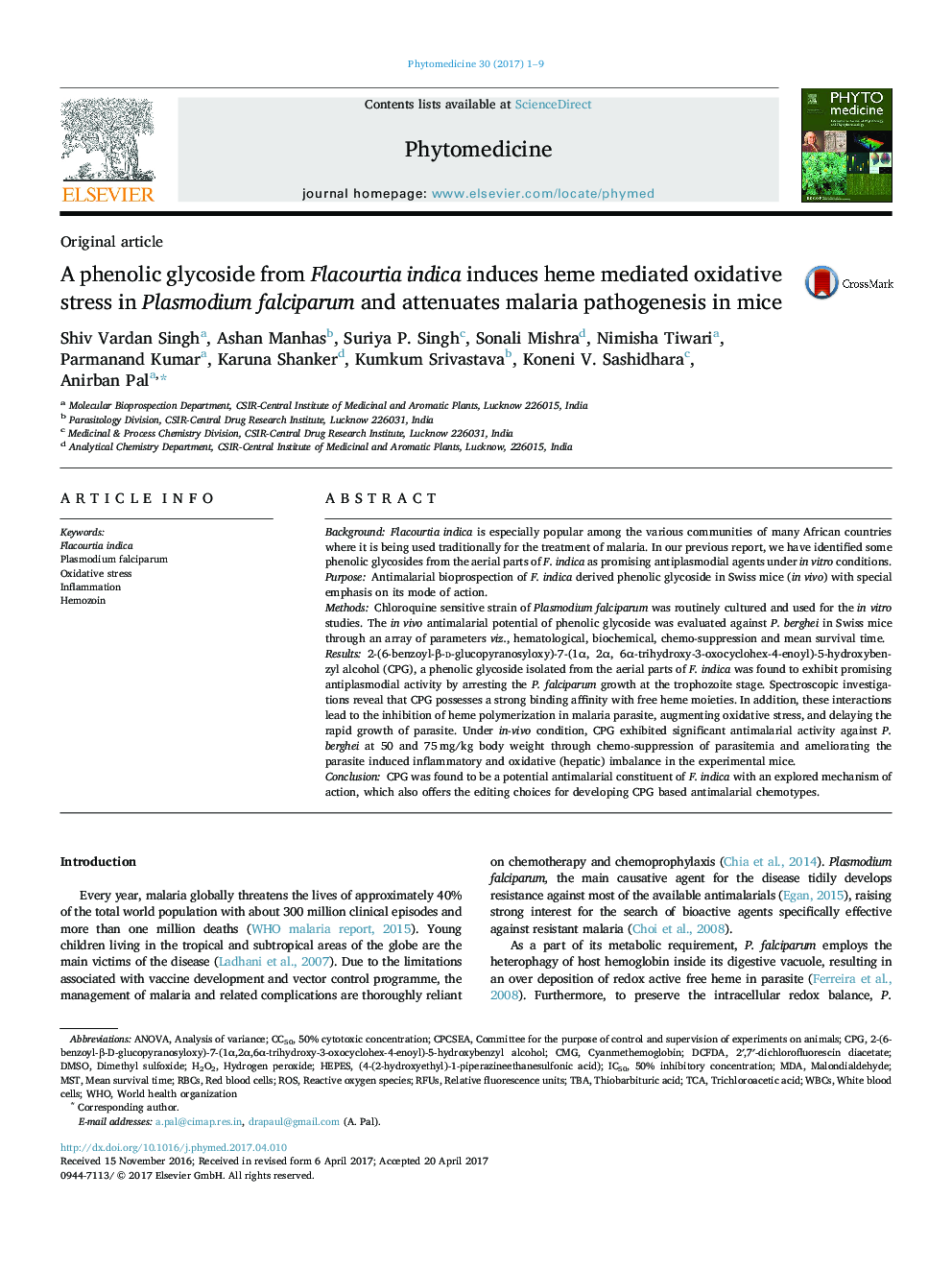| کد مقاله | کد نشریه | سال انتشار | مقاله انگلیسی | نسخه تمام متن |
|---|---|---|---|---|
| 5549327 | 1556689 | 2017 | 9 صفحه PDF | دانلود رایگان |

BackgroundFlacourtia indica is especially popular among the various communities of many African countries where it is being used traditionally for the treatment of malaria. In our previous report, we have identified some phenolic glycosides from the aerial parts of F. indica as promising antiplasmodial agents under in vitro conditions.PurposeAntimalarial bioprospection of F. indica derived phenolic glycoside in Swiss mice (in vivo) with special emphasis on its mode of action.MethodsChloroquine sensitive strain of Plasmodium falciparum was routinely cultured and used for the in vitro studies. The in vivo antimalarial potential of phenolic glycoside was evaluated against P. berghei in Swiss mice through an array of parameters viz., hematological, biochemical, chemo-suppression and mean survival time.Results2-(6-benzoyl-β-d-glucopyranosyloxy)-7-(1α, 2α, 6α-trihydroxy-3-oxocyclohex-4-enoyl)-5-hydroxybenzyl alcohol (CPG), a phenolic glycoside isolated from the aerial parts of F. indica was found to exhibit promising antiplasmodial activity by arresting the P. falciparum growth at the trophozoite stage. Spectroscopic investigations reveal that CPG possesses a strong binding affinity with free heme moieties. In addition, these interactions lead to the inhibition of heme polymerization in malaria parasite, augmenting oxidative stress, and delaying the rapid growth of parasite. Under in-vivo condition, CPG exhibited significant antimalarial activity against P. berghei at 50 and 75 mg/kg body weight through chemo-suppression of parasitemia and ameliorating the parasite induced inflammatory and oxidative (hepatic) imbalance in the experimental mice.ConclusionCPG was found to be a potential antimalarial constituent of F. indica with an explored mechanism of action, which also offers the editing choices for developing CPG based antimalarial chemotypes.
132
Journal: Phytomedicine - Volume 30, 1 July 2017, Pages 1-9